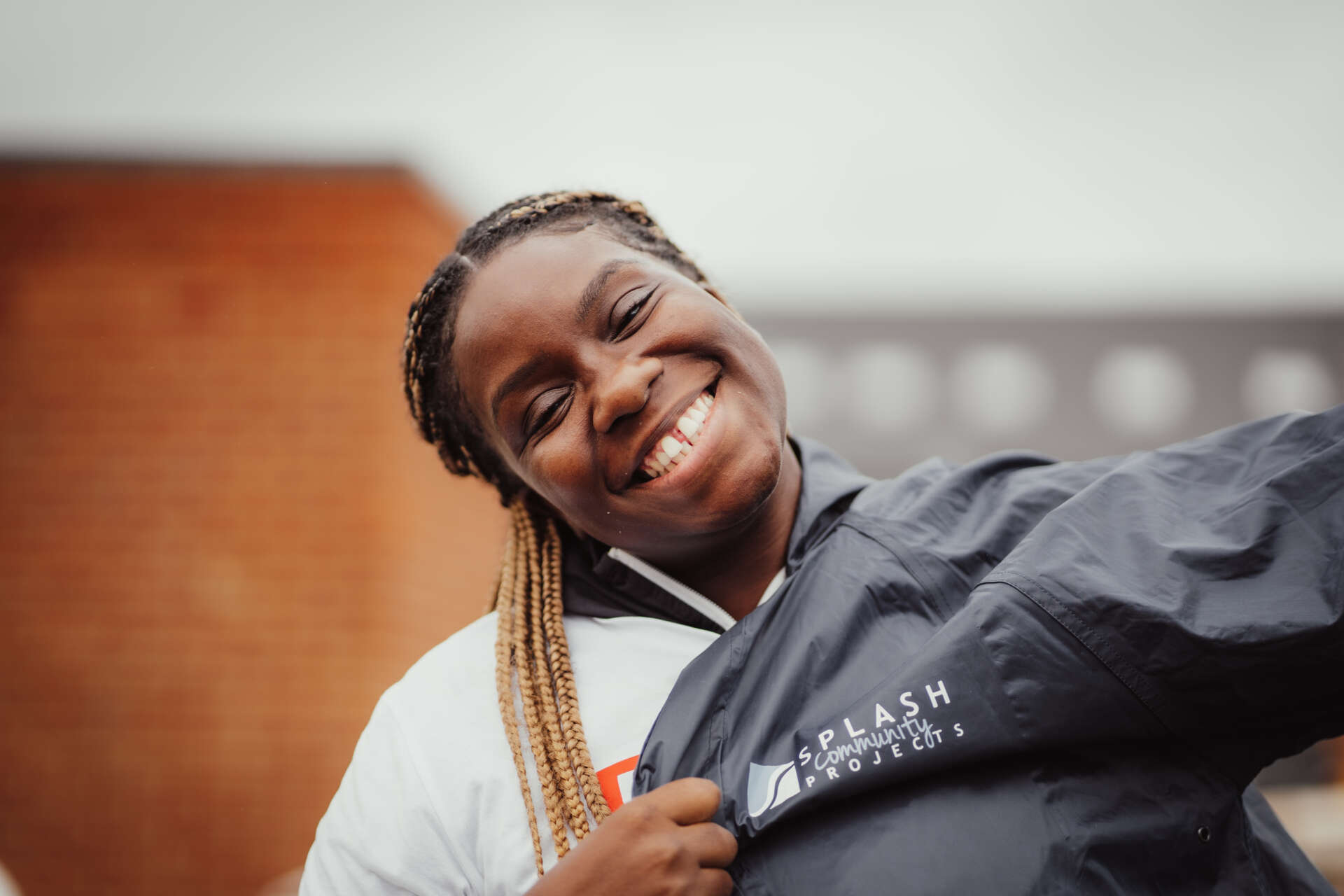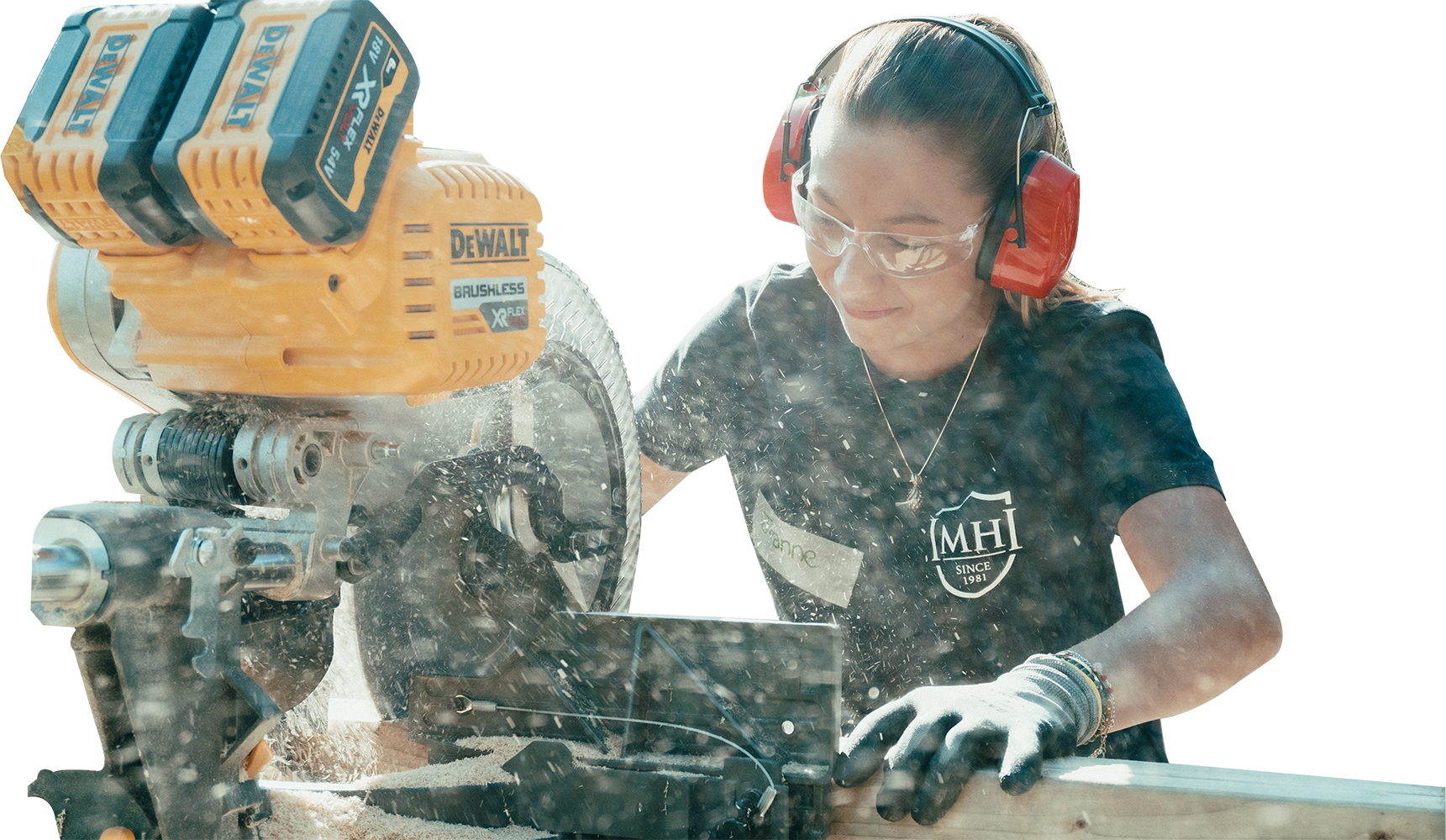
Team learning and development through community social impact
Here our Projects Director Colin Robertson explains why developing people is as important as building new facilities…
The build is what everyone sees on a Splash Project. What you can’t see is the transformation which occurs within everyone on that build.
The wood and the tools are the vehicle for developing the human.
The project process starts with the learning objectives; these are people centric learning objectives and could be anything from fostering a cohesive team, improving communication, leadership development or experiential project management.
For our Business School projects the objectives are even more sophisticated as they link to their curriculum and the professors leading Executive Education programmes request that we throw extra curve balls their way!
The impetus for us is to know exactly where our client partners are coming from and to position the project in that delivery model. So we work closely with them throughout the whole process and incorporate the learning element into the designs.
As a result, the team faces challenges outside of their normal working environment; the answers lie within them and team members are tasked with positioning one another to bring out the best in everyone.
Bringing out the best in people
In the office, you don’t get to see the best of people. I’ve had so many conversations with people who said they never knew their colleague could do this or that. The Splash Project experience has given them an opportunity to shine and see sides of each other that was unknown until this experience.
The learnings are far greater than a normal working day in the office.
They see each other in a completely different light; in the office, around a table, you don’t get to see all the skills people have. I don’t mean carpentry, but how people function in different environments. It highlights people who don’t get exposed in their day jobs.
Some of the best feedback we ever get is when a team hasn’t been able to finish their project. When you have a team of executives who always have the answers at their fingertips, their project is often the first time, or the first time in a long time, that they’ve experienced ‘failure’, i.e. they’ve been unable to finish every element they were tasked with. This is a massive learning point for them.
Failure is fire
There is always a risk in a Splash Project that it won’t be possible to complete. We cover that risk and make sure we stay on the next day to ensure the charity gets the complete build.
Failure is fire. You always see that at 2pm or 3pm, effort soars because they’re fired up by the fear of failure.
If it was all about a project which finished at 4pm with a nice half an hour for the tidy up, you wouldn’t have a Splash Project. Our projects finish with one minute to spare. Purposely.
Most people haven’t ever been put in a situation like this in their lives, so when they finish it’s incredibly satisfying.
Journey of self-discovery
Delivery of a project takes people with the right attitude and drive. You’ll find out a lot about yourself you didn’t know.
It’s a safe place to make mistakes and maybe one of the only times in the corporate business world that you can risk giving a junior member the chance to lead a team of 30 or 40 people.
Where else are people given a safe space to make mistakes in the business world? The stakes are too high. But if you crash and burn on a Splash Project, it doesn’t matter because we’re behind the scenes.
Before the project our focus is on the build. On the day, it’s all about the people.
When our guys are there, although they’re there to give technical advice and to maintain health and safety, they’re focused on the people and the experience they’re getting.
Empowerment
We take people out of their comfort zones and show them the impossible is possible.
All we do is give people the confidence to take something new on. A simple thing like using a power drill to screw something together. They walk away with a newfound confidence about taking on something unfamiliar.
And this is empowering. The more ownership you give people the more empowering it is for them.
We’re not trying to create builders, but an opportunity for learning in the context of volunteering, building and making a difference. We can make them both work in parallel if we’re smart about it.



